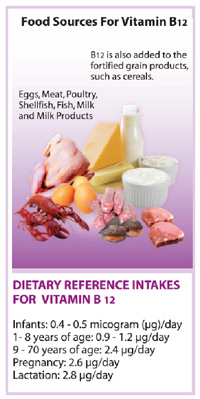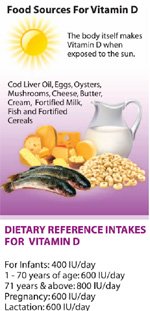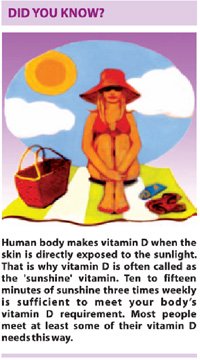Over the past few years, our lifestyle has changed tremendously. Skipping meals, increased intake of caffeine containing beverages, sedentary lifestyle, decreased exposure to sunlight – all these factors are not just responsible for the increasing incidence of obesity and diabetes in the population but also for many deficiency diseases. Vitamin B12 is one of the common deficiency that could lead to a myriad of health problems.
Vitamin B12 Deficiency

Vitamin B12 deficiency is a condition in which the body has inadequate stores of Vitamin B12. This deficiency is much more common than was previously believed.
Vitamin B12, also called as cobalamin, is involved in a number of key body processes. However, it plays a key role in the red blood cell production, functions of nervous system, sperm production, normal growth and adequate functioning of the immune system. It also improves memory and concentration, prevents cancer and protects the body against allergies and toxins.
Signs & Symptoms
- Fatigue, weakness and pallor
- Dizziness and fainting
- Irritability
- Depression
- Menstrual problems
- Shortness of breath
- Tingling and numbness of the feet
- Palpitations
- Poor appetite
Factors Leading to Vitamin B12 Deficiency
Vitamin B12 deficiency could result from inadequate dietary intake of vitamin B12 as it occurs naturally only in animal products. Children are at primary risk for developing this deficiency since they have less vitamin stores in their body. Besides, pernicious anaemia and intrinsic factor deficiency can also lead to vitamin B12 deficiency in adults. Also, vitamin B12 deficiency is far more common in elderly people and vegetarians.
Research Highlights
Recent studies indicate that B12 deficiency is far more widespread than believed. It is proposed that 600pg/ml is the criterion for low level rather than 350 pg/ml which was earlier.
Getting Your B 12 Levels Right
The diagnosis for this deficiency can be confirmed by serum B12 levels. The lowest and treatment, Vitamin B12 deficiency is treatable and has good prognosis with a minimal risk of developing serious complications, such as nerve damage, anaemia or dementia.
Treatment of vitamin B12 deficiency involves replacing the body’s depleted stores of vitamin B12. Oral vitamin B12 replacement therapy is prescribed in some cases. However, to ensure maximum absorption, it can also be administered intramuscularly via injections. Including portions of red meat, poultry, fish and dairy products in your diet will also help.





